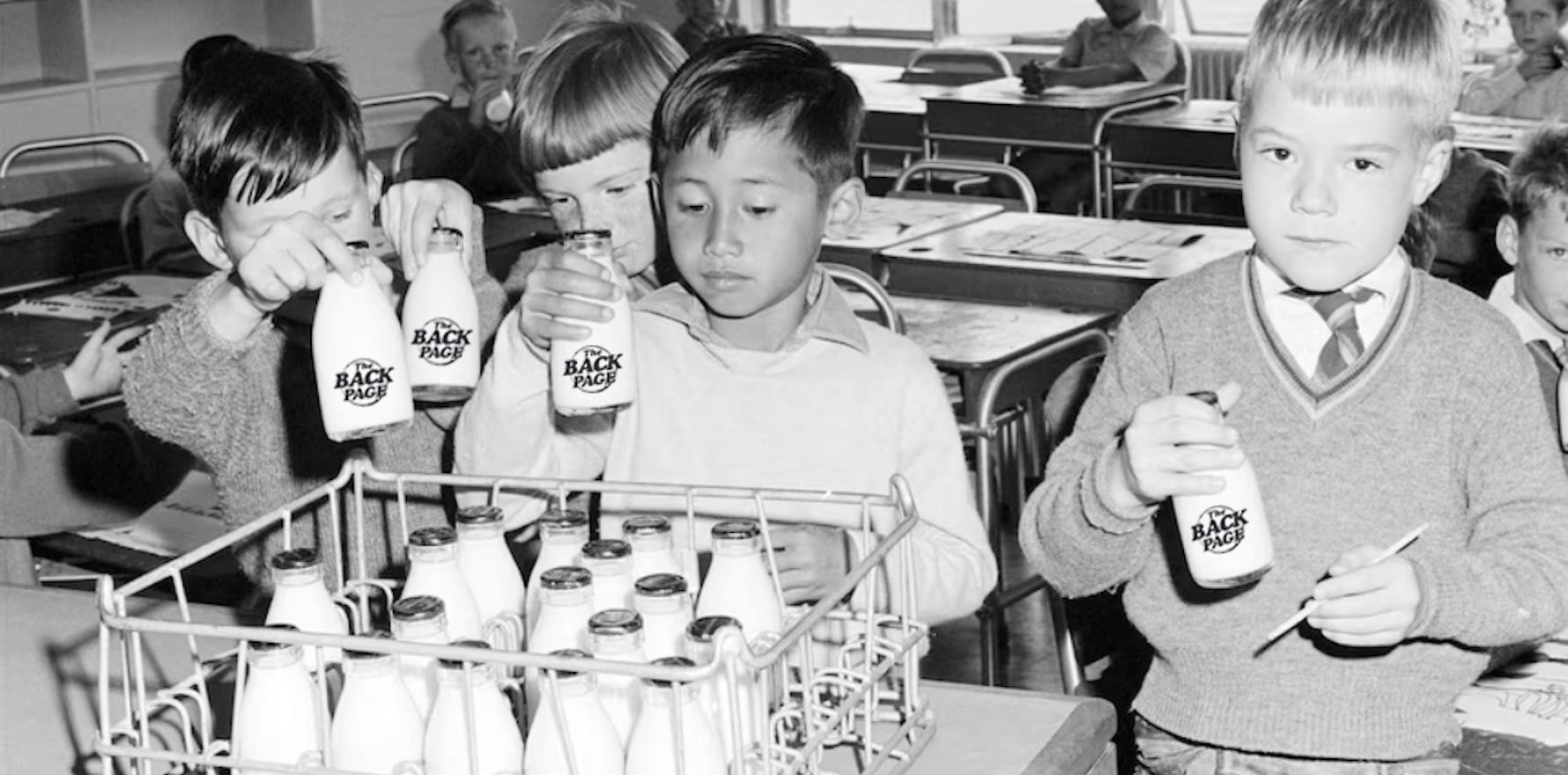Let’s fix it with school lunches.
On the radio this morning (because of course your Back Page scribbler listens to the radio), they were chatting about the idea of bringing in school lunches in primary schools.
It’s a bit of a back-to-the-future scenario, as so many good ideas seem increasingly to be. We’ve long heard nostalgic stories of school milk under Gough Whitlam, and some schools in disadvantaged areas already have meal programs.
The reason we bring this up is that perhaps these programs could do more than just fortify Australian students for the rigours of the curriculum and contribute to lessening inequity – although that would be plenty!
Perhaps they could also help to reduce the incidence of depression and anxiety in children by being carefully calibrated to affect their gut biome in just the right way.
Because a just-published, observational study from the University of California in the journal Nature Communications has reported finding that babies with a higher representation of bacteria in the Clostridiales order and Lachnospiraceae family in their guts had a greater risk of what those in the know call “internalising symptoms”, which include symptoms of depression and anxiety, in the middle part of their childhood.
The combination of hearing snippets of that program and reading of this discovery over a mid-morning nibble was serendipity that could not be ignored, dear reader.
It’s all to do with communication, the authors said, and how the brain develops connections between different emotion-related parts of its network.
“By linking early-life microbiome patterns with brain connectivity and later symptoms of anxiety and depression, our study provides early evidence that gut microbes could help shape mental health during the critical school-age years,” said senior author Dr Bridget Callaghan, an associate professor of psychology and Bernice Wenzel and Wendell Jeffrey Term Endowed Chair in Developmental Psychology at UCLA.
The research was based on data from 55 participants in a longitudinal birth cohort study in Singapore, which collected various data including tool samples at age two, resting state MRI brain scans at age six, and survey data from caregivers about behavioural issues when the children were 7½.
The UCLA study identified combinations of brain connectivity patterns when the kids were six years old and internalising symptoms at 7½, and then looked at the way that gut biome profiles at the age of two were related to those.
Clostridiales and Lachnospiraceae microbes came up trumps, just like they do with adults who have depression and anxiety.
“We need to figure out what species within these larger groups are driving the findings. Once we have that information, there are relatively straightforward ways to change the microbiome, like probiotics or diet, that we could use to address issues,” said Dr Callaghan.
The Back Page would like to suggest that we go right ahead and jump the gun. Education and health budgets are always stretched. They already work together (sometimes, in some jurisdictions) on things like school nurses. Let’s chuck school lunches into the mix.
It’s got to be worth a shot. To mangle a phrase from another past prime minister, any politician who doesn’t support happier kids is a bum.
Send any other fixes gleaned from random connections to the Back Page at Holly@medicalrepublic.com.au.


